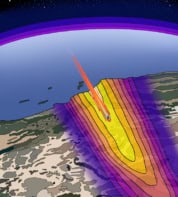
The 2018 Nobel Prize in Economic Sciences has been awarded jointly to William Nordhaus of Yale University, US, for “integrating climate change into long-run macroeconomic analysis” and Paul Romer of New York University, US, “for integrating technological innovations into long-run macroeconomic analysis”.
“This year’s prize rewards the design of models and methods to address some of the most fundamental and pressing questions of our time, involving the long-run development of the global economy and the welfare of its citizens,” writes the Royal Swedish Academy of Sciences’ backgrounder on the prize. “Paul M Romer has given us new tools for understanding how long-run technological change is determined in a market economy, while William D Nordhaus has pioneered a framework for understanding how the economy and climate of our planet are mutually dependent on each other.”
Romer and Nordhaus will each receive half of the 9 million Swedish krona prize.
According to the Academy, in his focus on the fundamental challenges of climate change, Nordhaus has stressed important negative side effects – and thus the restrictions – of the endeavours to bring about future prosperity. “Both Romer and Nordhaus emphasize that the market economy, while a powerful engine of human development, has important imperfections and their contributions have thus offered insights into how government policy could potentially enhance our long-run welfare,” the backgrounder writes. “…Looking forward, the combined work by the Laureates offers the research community an opportunity to address long-run issues around climate, energy supply and sustainability, by studying government policy together with endogenous technological change in the global market economy.”
Beginning in the 1970s, Nordhaus studied economic growth and natural resources, the economics of climate change, and resource constraints on economic growth. He developed the integrated assessment model, making economic and climate models compatible to investigate how fossil fuels burnt for economic use give off carbon emissions that raise atmospheric concentrations of carbon and boost global temperatures, in turn causing economic harm.
Nordhaus created the DICE (Dynamic Integrated Climate-Economy) and RICE (Regional dynamic Integrated Climate-Economy) models to determine efficient paths for coping with climate change. These models were the foundation for integrated assessment models used by the Intergovernmental Panel on Climate Change, by the US Environmental Protection Agency to estimate the social cost of carbon, and in Nicholas Stern’s review of the economics of climate change for the UK government in 2007.
Nordhaus currently directs the G-Econ project, which provides the first comprehensive measures of economic activity at a geophysical scale. His most recent book The Climate Casino: Risk, Uncertainty, and Economics for a Warming World came out in 2013.
Romer’s work on drivers for knowledge creation is also relevant to the way we deal with climate change. “It is entirely possible for humans to produce less carbon,” he said at the press conference announcing his Prize in Economic Sciences, according to the official Nobel twitter stream. “Once we start to try to reduce carbon emissions, we’ll be surprised that it wasn’t as hard as we anticipated.”
- This news story is based on press releases from the Royal Swedish Academy of Sciences and Yale University.



